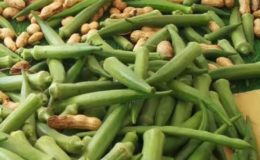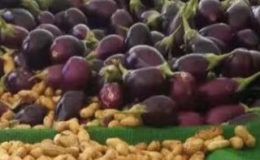High Blood Pressure Patient’s Diet
- By : Eileen
Salt is one of the most important substances for human survival and a necessity of life. Salt is very important to the human body.
The main component of salt is sodium chloride. The physiological function of sodium and chlorine ions is to maintain the osmotic pressure of an extracellular fluid. Participate in the regulation of acid and alkali balance in the body; Chlorine ions are also involved in the formation of stomach acid in the body, and salt also plays a role in maintaining normal excitability of nerves and muscles.
So the human body is inseparable from the salt, but once the hypertension is diagnosed, it is important, on diet, to strictly control the intake of salt, and of the dietary guidelines for salt intake is less than 6 g per person a day.
However, since salt is so important to the human body, how does it affect blood pressure?
How does high salt diet cause hypertension?
Microscopic cells
After intake of salt, sodium ions fluid into the cell along with the water because of the difference of inside and outside the cell concentration. The cell volume increases, and it increases blood volume, which makes the blood vessel cavity is relatively narrow. The resistance increases results in the pressure vessels has increased, then the blood pressure will increase.
The overall macro
Too much salt raises the osmotic pressure, and it stimulates hypothalamus osmotic pressure sensors and thirst center, which make the person produces the feeling of thirst and prompts people to drink water to dilute too much salt in the blood.
With more salt in the blood, the kidneys produce hormones that regulate the balance of electrolytes, such as aldosterone, which is produced by the adrenal gland.
In addition to the above effects, salt also damages the inner wall of blood vessels, damages the endothelial cells, damages the blood vessels, and the long-term such injury stimulation will inevitably lead to the blood vessels becoming thinner and more vulnerable.
Therefore, whether diagnosed or not, sodium intake must be strictly controlled.
How to reduce sodium intake?
1. At home, table salt should be used as less as possible. The appropriate acid, hot, and spices are a good replacement. Or fragrance ingredients can be used, for example, onion, mushroom, tomato, lemon, etc.
When eating out, you can prepare a cup of water. Don’t look down upon this glass of water. In the process of rinsing dishes, it can not only dilute some salt but also remove part of grease. This is also a good way to control weight.
2. Avoid or minimize salty marinade products and condiments, such as millet, marinated meat, soy sauce, broad bean paste, etc
3. Drink fewer sports drinks or drinks containing sodium. It is very important to pay attention to salt intake even if you can’t taste or see it. For example, salted duck eggs, instant noodles, pickles, ham, cooking soup, processed, and canned food, etc.



